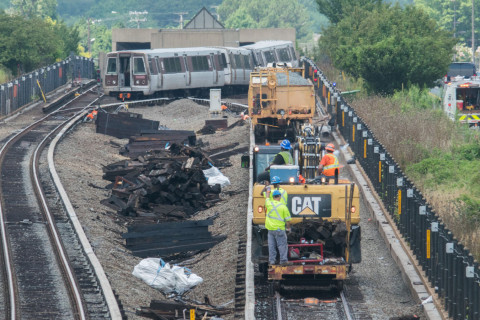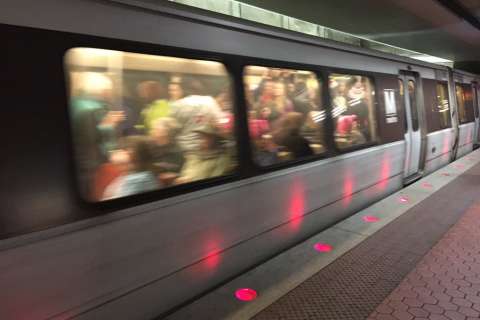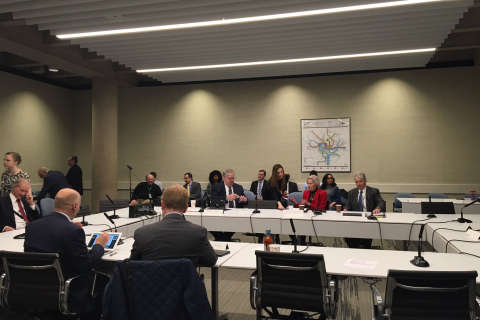WASHINGTON — Track inspectors fired over what Metro describes as falsified or copied track inspection reports are simply guilty of “shoddy paperwork,” which means at least some likely should not have lost their jobs, a top union leader said.
In all, 16 front-line workers and five supervisors in the track inspection department were fired as a result of an investigation that began after a train derailed near East Falls Church in July. Including others disciplined, nearly half of the entire department faced some kind of punishment.
Metro is now finishing a rewrite of its track inspection manual and plans a 10-week retraining course for inspectors who remain employed at the agency. Metro is hiring 10 contractors to fill in as inspectors while the remaining staff are retrained in cycles.
A union official argued Thursday that less-experienced inspectors were regularly given more work to do than was realistically possible, so they should not be blamed for any incorrect reports.
“If you give me an assignment to do 37 switches, and you know that it’s an uncompletable task by me, and you’re my manager, why are you giving me this assignment?” said Amalgamated Transit Union Local 689 Second Vice President Raymond Jackson.
He said the union, which represents most Metro workers, was still trying to get more information from Metro about the evidence the agency has to support the firings. The union is in the process of raising grievances that could eventually lead to arbitration panels in each case.
“I would say the answer is the culture at this company, and once you change the safety culture — and I don’t know how many times we can say this to you — once you change the safety culture at this company, you’ll change the problem,” Jackson said.
An arbitration panel ruled earlier this year that a worker who falsified fan-shaft maintenance records should be reinstated due to systemic failures throughout the agency that may have contributed to his actions.
Metro Chief Safety Officer Pat Lavin met this week with ATU Local 689 President Jackie Jeter to discuss general safety issues and improvements after a series of other problems were uncovered.
The issues included a train operator opening the doors of a moving train while it was outside the Reagan National Airport Station who then failed to do proper safety follow-ups, a worker who fell down an air shaft that was not properly marked for safety, and a worker and supervisor shocked by the third rail while doing work that should only have been done with the power off.
Federal Railroad Administration Chief Safety Officer Robert Lauby, who is a Metro Board member, cited these as examples of “practical drift.”
“That’s the difference between what the policy says and what actually happens in performing the work, and I think that’s certainly an issue here,” he said Thursday.
The union’s first vice president, Caroll Thomas, agrees with Lauby that workers know where potential safety issues lie.
“When Metro comes to the table and invites the union to the table to start to address these issues, we will be safe, the public will be safe … it’ll be a better system. You can no longer discipline your way out of these problems,” Thomas said.
“You know what it takes? It takes money. These politicians have to stop playing Russian roulette with folks’ lives. If you want a better system, you have to put the money in the system. That’s what it takes,” he said.
Metro and the union continue contract talks. Their agreement expired in the middle of last year.







